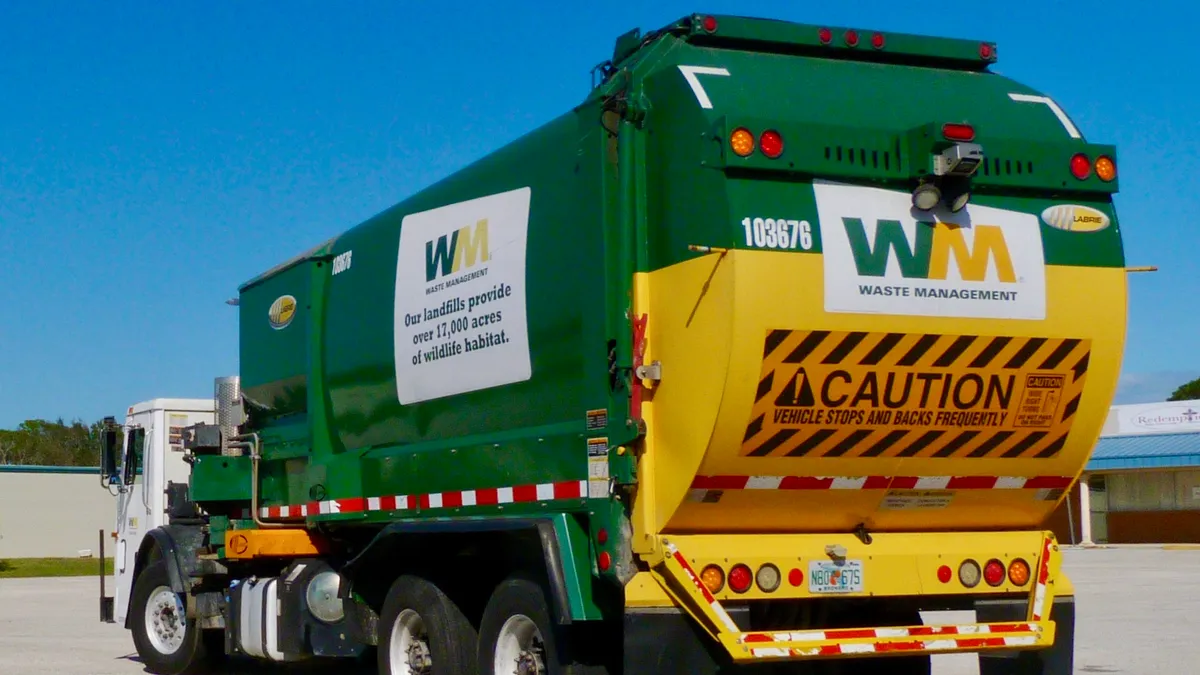UPDATE: June 19, 2019: Nevada-based Green Solutions Recycling (GSR) has filed an appeal with the U.S. Court of Appeals for the Ninth Circuit over the prior dismissal of its case against Waste Management subsidiary Reno Disposal Company. While the company's argument is primarily focused on the applicability of federal antitrust law as it relates to state regulations, Nevada's definition of recycling itself is also a key element.
"Notably missing from those statutes is the Nevada Legislature’s clearly articulated and affirmatively expressed state policy authorizing municipalities to grant a monopoly for recycling," reads a brief filed on June 14, adding, "Vitally, recyclable materials that are not treated as waste are not 'garbage and other waste' under Nevada law. Equally important, 'disposal' is a distinct service from 'recycling.'"
The GSR brief also outlines various other disputes, including price "pegging" for recyclables and the city's lack of supervision over competitive practices per state requirements. Waste Management, its subsidiary and the City of Reno now have until Aug. 14 to file their own answering briefs.
Dive Brief:
- A federal judge in the District of Nevada ruled on Jan. 7 that Waste Management's commercial franchise agreement in Reno is protected by state law and does not constitute price fixing, following a lawsuit from Green Solutions Recycling (GSR). ThisisReno reports that GSR is considering an appeal.
- The decision found GSR is violating franchise terms by charging for the collection of recyclables, as the definition of "waste" is considered intentionally broad. The only way around this would be if GSR hypothetically offered the service at a net profit to customers.
- The Nevada law that authorizes franchises doesn't explicitly mention recyclables, but the judge found both "the City’s grant of a monopoly" and the "anticompetitive conduct" inherent in this arrangement are "clearly articulated and affirmatively expressed as state policy."
Dive Insight:
Waste Management's long-term franchise contract with Reno dates back to 2012 through multiple subsidiaries, including Reno Disposal, Castaway Trash Hauling and Refuse, Inc. The company was targeted in prior lawsuits by other local competitors for its acquisition strategy around the time of this contract award, but has repeatedly emerged unscathed.
But multiple years of pushback from the few competitors that remain, along with interest from some businesses in utilizing them, has kept the issue alive. Last year, the Reno City Council began a study of Waste Management's performance under the agreement, and the city's mayor considered waiving penalties for customers who stepped outside it. How this new ruling will affect enforcement going forward remains unclear.
GSR's suit was initially filed in 2016, culminating in a final hearing last month. Among the many competing motions, the judge ultimately chose to rule on three: She ruled against Waste Management's attempt to dismiss the case over jurisdictional questions around interstate commerce, ruled in favor of the company's motion regarding the enforceability of the franchise agreement, and ruled in favor of the company for partial summary judgment.
Given that the case largely came down to the definition of waste itself — something which the judge found to be inherently subjective — the odds were not in GSR's favor. "For example, a commonplace item such as a disposable plastic spoon might have little value to many people but a great deal of value to someone who has no spoons," read one choice passage of the decision.
By this definition, any arrangement in which GSR profited from collecting material would be deemed in violation of the city's franchise agreement. Per one example, GSR charged a customer $440 per month for a recycling container and paid a rebate of $2.52. That rebate would need to outweigh the cost in order to qualify — but given the current state of commodity markets, such a scenario would likely be untenable in the near term.
While there have been other efforts to challenge franchise language at both the state and local level in Nevada, none have been successful to date. Waste Management maintains a lock on Reno, Republic Services has one on Las Vegas and there is little place for small service providers between the lines of these regulations. The concept of exclusive franchising may have sparked larger debates in other parts of the country recently, but in Nevada it appears to be alive and well.















